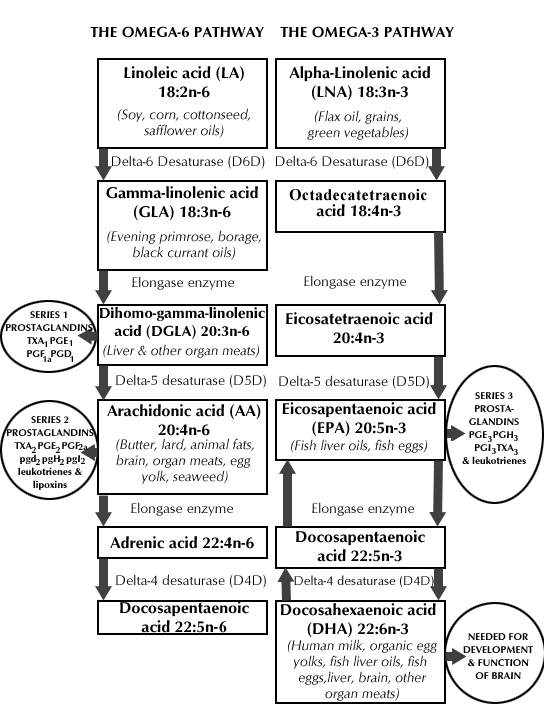Top 7 Reasons to be on Raw, Plant-Based, Organic Oils
For these 7 reasons (and there are others), organic, plant-based oils offer superior solutions for multiple areas of health and fitness:
- Your Cells are Actually Made out of These Oils
- Processing Destroys the "Life" of Most Oils in our Food Today
- Fish or Krill Based Oils are Derivatives and Unnecessary
- The Basis for Any "Ketogenic" Diet
- Improves Energy and Sense of Well-Being
- Improve Healing and Recovery
- Highly Anti-Inflammatory
1. Your Cells are Actually Made out of These Oils!
By this I mean your cell membranes, both the external membranes and internal (mitochondria etc.), which makes up about 75% of the cell by volume 40% by weight (Auger, 2018). All the biochemical processes that go on in each one of your cells occurs ON the cell membrane in some form, and the membrane controls what goes in and what comes out, the most important of which is OXYGEN. By giving yourself the proper Omegas, you develop healthy cell membranes and maximize the performance of all of your cellular processes.
2. Processing Destroys the "Life" of Most Oils in our Food Today!
Check the ingredient list of anything packaged in your cupboard today. The majority of them will contain canola, corn, soy or cottonseed oil. Why is that? These are highly processed oils, which means they are treated in such a way that they won’t spoil; therefore, the “food” that contains them lasts forever on the shelf. How? They actually spoil the oil artificially, then clean out the nasty smelling and tasting by-products and market that as consumable.
Spoiling is the oxidation of fats (which is where that smell of rotting fish comes from). “Pre-rotted” fats can no longer absorb OXYGEN, so when you eat these foods and these fats are absorbed by your cell membranes, you won't be able to absorb oxygen either. This leads to fatigue, inflammation, and eventually chronic illnesses such as diabetes, heart disease, arthritis, and cancer (Steps in Oil and Meal Processing, 2017).
3. Fish and Krill Based Oils are Derivatives and Unnecessary!
Fish and krill oils contain the fatty acids DHA and EPA. These are long chain fatty acids that our body is able to make in the small amounts that we need - supplementation is not needed provided we have an adequate amount of healthy, raw, organic plant-based oils that are the medium chain fatty acids LA and ALA. In fact, 83% of fish and krill oils are rotten (oxidized) by the time they hit the shelf (Cameron-Smith, Albert, & Cutfield, 2015), hence those “fishy” burps for those that have tried them. Best to avoid.
4. The Basis for Any "Ketogenic" Diet
A ketogenic diet is any diet where the predominant source of calories is from fat. As you can see from above, many fats (unsaturated fats) are unstable in the presence of heat and oxygen and decay or rot easily. Saturated fats (such as coconut oil) are stable for very long periods of time and are the preferred fuel for the body. They are 7 to 9 times better at producing energy than carbohydrates and are especially good for the brain and heart (Fan, 2013). It is therefore paramount that the unsaturated fats be as fresh as possible, since oxidation destroys the good qualities they possess. Hence, the way Pure Form Omega® Natural is processed (cold-pressed, under a blanket of nitrogen with a nitrogen bubble in each capsule) maintains the freshness of these unstable oils for long periods of time.
5. Improves Energy and Sense of Well-Being
Again, everything comes back to having healthy cell membranes. When OXYGEN can more easily cross the membrane, you get much more efficient energy production from the mitochondria of your cells. That leads to better athletic performance, but also to improved cardiovascular fitness, a better functioning liver and kidneys, and, most importantly, a higher functioning brain. Consider that your brain consumes 20% of your energy. Anything that improves the efficiency of your brain will lead to better mental fitness and an improved sense of well-being.
6. Improves Healing and Recovery
The biggest impediment to healing is tissue OXYGENATION. This can lead to excessive soreness after workouts, poor healing after injury, chronic non-healing of wounds, and even amputation in extreme cases. As per the study at the University of Miami, Pure Form Omega® Natural follows the predicted biochemistry of superior wound healing by improving oxygenation to all cells of the body. With better oxygenation, you get superior aerobic metabolism, less anaerobic metabolism, which as athletes know gives superior athletic performance, better stamina, and greatly reduced recovery time.
7. Highly Anti-Inflammatory
Inflammation is when cells call for help from the rest of the body (especially the immune system) by releasing inflammatory factors to deal with an injury or infection. The easiest way to injure a cell is deprive it of oxygen. If you keep the cell healthy, you decrease inflammation. But Pure Form Omega® Natural has an added bonus: the formulation contains an extra bit of GLA (gamma-Linolenic Acid) which pushes cells to make more PGE1, the most powerful anti-inflammatory the body makes. So by using the bodies own biochemical processes, PFO decreases inflammation directly and relieves painful conditions such as arthritis.

Image Source: Mary G. Enig, Ph.D., adapted from RR Brenner, Ph.D. The Role of Fats in Human Nutrition, 1989
REFERENCES
Auger, M. (2018). Chemistry Explained: Foundations and Applications. Retrieved from http://www.chemistryexplained.com/Ma-Na/Membrane.html
Cameron-Smith, D. Albert, B. Cutfield, W. (2015). “Fishing for answers: is oxidation of fish oil supplements a problem?” Journal of Nutritional Science, 4 (36).
Fan, Shelly. (2013). The fat-fueled brain: unnatural or advantageous? Retrieved from https://blogs.scientificamerican.com/mind-guest-blog/the-fat-fueled-brain-unnatural-or-advantageous/
Steps in Oil and Meal Processing. (2017). Retrieved from https://www.canolacouncil.org/oil-and-meal/what-is-canola/how-canola-is-processed/steps-in-oil-and-meal-processing
